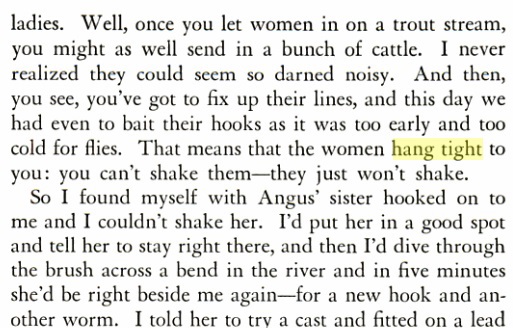What is the origin of "hang tight"? When did it first appear in the American lexicon? It's meaning is well defined:
To remain in one's current location.
To wait patiently.
Checking Etymonline shows origins for "hang" and "tight":
hang — Teen slang sense of "spend time" first recorded 1951; hang around "idle, loiter" is from 1828, American English; also compare hang out. To hang back "be reluctant to proceed" is from 1580s; phrase hang an arse "hesitate, hold back" is from 1590s. Verbal phrase hang fire (1781) originally was used of guns that were slow in communicating the fire through the vent to the charge. To let it all hang out "be relaxed and uninhibited" is from 1967.
tight — From 1670s as an adverb; to sit tight is from 1738; sleep tight as a salutation in sending someone off to bed is by 1871.
Is "hang tight" just a simple combination of previous meanings that eventually became its own idiom? A few informal sources suggest it originated in surfing communities but it seemed like speculation.

